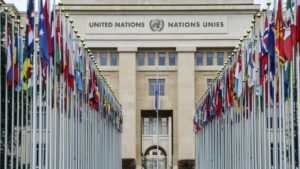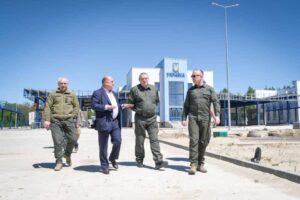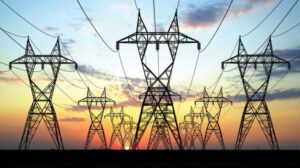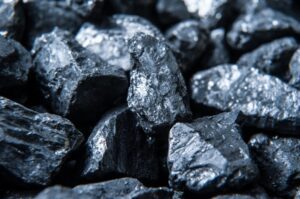
Civilian casualties from February 24, when Russia started the war against Ukraine, to 24:00 on May 18 amounted to 8,089 civilians (the day before – 7,964), including 3,811 dead (3,778), reports the Office of the UN High Commissioner for Human Rights (OHCHR) on Thursday.
“OHCHR believes that the actual figures are much higher as information is delayed from some areas of heavy fighting and many reports are still awaiting confirmation,” the UN data document notes.
According to him, this applies, for example, to Mariupol (Donetsk region), Izyum (Kharkiv region) and Popasna (Luhansk region), where there are reports of numerous civilian casualties. They are subject to further verification and are not included in the above statistics.
“The majority of civilian deaths or injuries were caused by the use of explosive devices with a wide area of effect, including shelling from heavy artillery and multiple launch rocket systems, as well as rocket and air strikes,” the report says.
According to confirmed UN data, 1,429 men, 937 women, 98 boys and 87 girls died, while the sex of 70 children and 1,190 adults has not yet been determined.
Among the 4,278 injured were 115 boys and 103 girls, as well as 164 children whose gender has not yet been determined.
Compared with the report the day before, four children died.
OHCHR indicates that in the Donetsk and Luhansk regions at midnight on May 19, 1973 (1946) deaths and 1821 (1761) injured were recorded in the territory controlled by the government, and 126 (124) deaths and 502 (492) injured in the territory controlled by the self-proclaimed “republics”.
In other regions of Ukraine under government control (in Kyiv, as well as in Zhytomyr, Zaporozhye, Kyiv, Sumy, Odessa, Nikolaev, Kharkiv, Kherson, Dnepropetrovsk, Cherkasy and Chernihiv regions), the UN recorded 1712 (1708) dead and 1955 (1930) wounded .
The summary traditionally states that the increase in figures from the previous summary should not be attributed only to the cases on May 18, since during this period the Office verified a number of cases from previous days.

Canada, which has allocated 1 billion Canadian dollars (about $780 million at the current exchange rate) of financial support to Ukraine in its next budget, remains the only country that intends to use a special account administered by the International Monetary Fund (IMF) to send this assistance.
“The account allows donors to channel further support to Ukraine securely, through loans or grants, using our fiduciary infrastructure. Canada has a billion in its upcoming budget. I am not aware of any other pledges or commitments at this time. We will keep you posted,” he said. IMF Representative Gerry Rice at a traditional briefing in Washington on Thursday.
When asked about the Fund’s exchange rate advice, in particular the advisability of adjusting the fixed rate policy chosen at the start of the war, the IMF spokesperson said that he “is not aware of any specific advice that we have given regarding the adjustment at this time.”
Rice also said that the Fund remains in very close contact with the Ukrainian authorities, almost daily, in particular, a few days ago there was another conversation between IMF Managing Director Kristalina Georgieva and Ukrainian President Volodymyr Zelensky.
As reported, on February 24, the National Bank suspended the work of the foreign exchange market of Ukraine, except for the sale of foreign currency, and fixed the exchange rate at the official level of that day – UAH 29.2549/$1, which led to the emergence of a “black” market, where in the first days the exchange rate reached 39-40 UAH/$1. Later, the regulator allowed the sale of currency in branches that are under the threat of capture by the invaders, by decision of their leadership.
The NBU made the next liberalization step on April 15, when it granted banks and non-banking financial institutions the right to sell cash currency throughout the country at a rate not higher than “official plus 10%”, but within the volume of the purchased currency. As a result, many banks declared the possibility of selling foreign currency at the maximum possible rate of UAH 32.17-32.18/$1 and at the same time raised the purchase rate closer to the selling rate. However, according to market participants, it is extremely difficult to freely officially buy cash currency. Nevertheless, the “black” market reacted with a slight strengthening of the hryvnia, as a result of which the dollar exchange rate on it was only about 2% higher. Now this difference has increased to about 14%.

The EU will finance the reconstruction of Dyakovtsy and Koasnoilsk checkpoints on the Ukrainian-Romanian border, the State Customs Service reported.
As the Telegram service indicated on Thursday following a working meeting with the head of the Romanian customs, Bogdan Migei, EU funding will be directed to building infrastructure for trucks from the Ukrainian side.
At the same time, the customs did not specify the amount of funding that would be required for these works.

In January-April 2022, Ukraine increased its revenue from electricity exports by 2.6 times (by $87.11 million) compared to the same period in 2021, to $141.05 million, according to the State Customs Service.
According to Interfax-Ukraine estimates, over the four months, electricity was supplied to Slovakia for $48.968 million, Hungary – for $40.408 million, Romania – for $29.274 million, other countries – for $22.4 million.
In April this year, electricity export revenue amounted to $1.108 million compared to $31.125 million in April 2021.
In addition, Ukraine in January-April 2022 imported electricity for $102.114 million against $54.321 million for the same period in 2021, in particular from Belarus – for $100.414 million, Slovakia – for $873,000, Romania – for $491,000, other countries – for $336,000.
In April this year, Ukraine imported electricity for $1,000 against $6.926 million in April 2021.

Ukraine in January-April this year increased the export of ferroalloys in physical terms by 7.2% compared to the same period last year – up to 220.206 thousand tons.
According to statistics published by the State Customs Service (STS), in monetary terms, exports of ferroalloys increased by 58.5% to $390.861 million.
At the same time, the main exports were to Poland (60.98% of supplies in monetary terms), Italy (6.67%) and the Netherlands (6.53%).
In addition, during this period, Ukraine imported 13.461 thousand tons of these products, which is 27.4% less compared to January-April 2021. In monetary terms, imports increased by 7.3% to $46.381 million.
Import was carried out mainly from Norway (35.43%), Brazil (15.44%) and Kazakhstan (13.32%).
As reported, Ukraine in 2021 increased the export of ferroalloys in physical terms by 6.9% compared to 2020 – up to 668.539 thousand tons, in monetary terms, the export of ferroalloys increased by 58.2% – up to $1 billion 43.880 million. the main exports were to Turkey (19.87% of supplies in monetary terms), Italy (13.51%) and China (11.28%).
In addition, in 2021 Ukraine imported 59.569 thousand tons of these products, which is 75.6% more by 2020. In monetary terms, imports increased by 84.5% – up to $177.616 million. Imports were carried out mainly from Brazil (16.93%), Norway (15.72%) and Kazakhstan (15.1%).
The business of the Stakhanov and Zaporozhye Ferroalloy Plants (SZF and ZZF) was organized by PrivatBank (Kyiv) before the financial institution was nationalized. The Nikopol Ferroalloy Plant is controlled by the EastOne group, created in the fall of 2007 as a result of the restructuring of the Interpipe group, as well as the Privat group.

After the first test deliveries of coal to Poland in the amount of 50,000 tonnes, DTEK Energy Holding is considering the possibility of ensuring regular export of energy resources, taking into account the problems of logistics in the conditions of war, Dmytro Sakharuk, the Executive Director of DTEK, said.
“We made the first test shipments of coal to Poland. This is a small amount – 50,000 tonnes. Unfortunately, there are very big difficulties in terms of logistics, because the railway infrastructure in both Ukraine and Poland is not designed for such a volume of movement of goods. As well as ports in Poland – Gdansk and Gdynia. Therefore, there are test deliveries, but there no large volumes, as it could be done via the sea, Pivdenny port, for example,” Sakharuk said in a commentary to the Energy Reform portal.
At the same time, he assured that the company is considering the possibilities and continues to work out ways to supply coal to Poland.
“Coal from other sources is critical for Poland to replace the volume of deliveries from Russia that were banned. It would be very good if Ukraine would lend a shoulder to Poland, which helps us a lot and would help the Poles survive the rejection of Russian coal,” he said.
According to his calculations, in times of seasonal coal surplus, the energy holding could ship approximately 100,000-150,000 tonnes per month to Poland – the volume that remains after providing its thermal power plants and other consumers.
“This will not ensure full diversification of supplies, but it will be our contribution to the fact that our Polish friends will receive assistance. It is suitable in terms of quality. You just need to learn how to quickly and smoothly deliver it to Poland,” DTEK’s top manager emphasized.
At the same time, he drew attention to the fact that the supply of coal from Ukraine by rail is a faster and more economical alternative for the Poles compared to sea supplies.